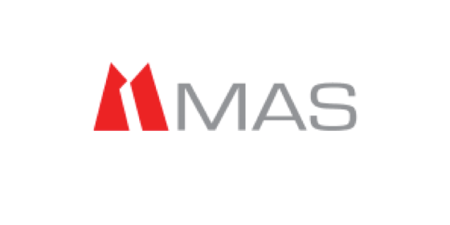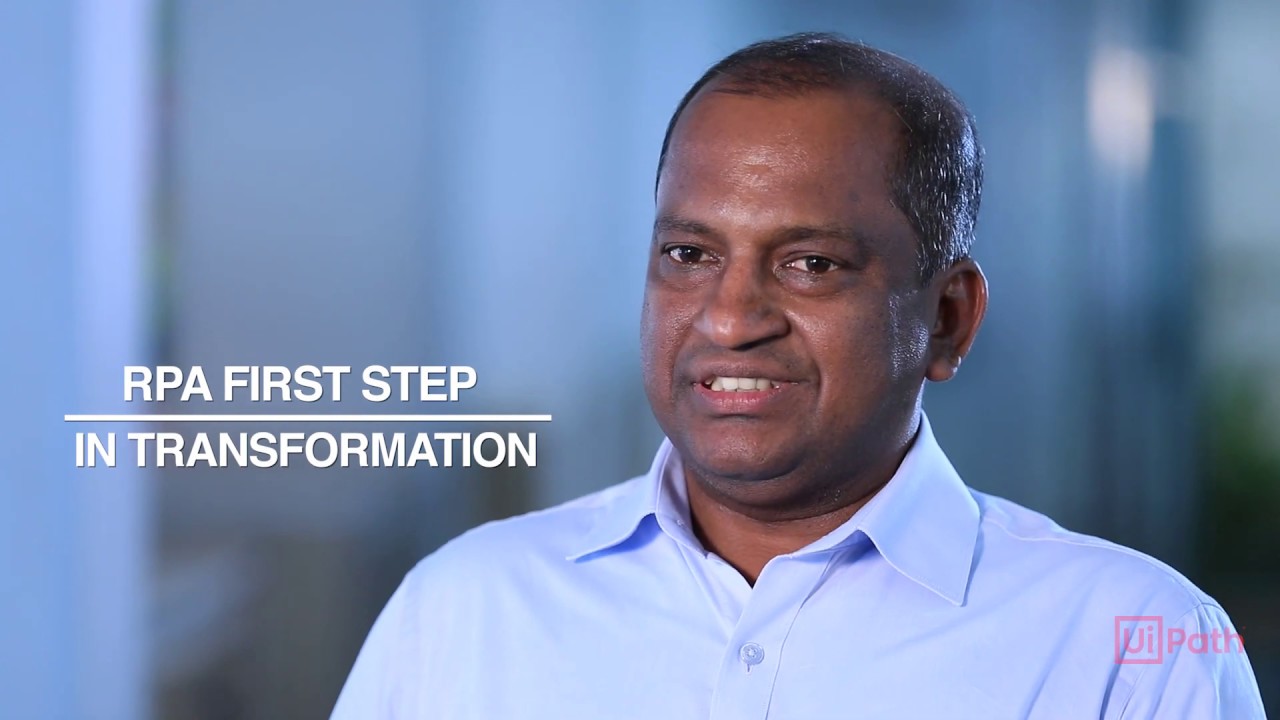
Industry:Manufacturing
Region:Asia Pacific & Japan
Client:MAS Holdings
UiPath Helps MAS Holdings Save 14,000 Labor-Days Annually

14k
work days saved annually
10
UiPath Robots currently in production at MAS Holdings
25
UiPath Robots planned for implementation over next few months
52
automated processes
Client Overview
MAS Holdings is South Asia’s leading apparel and textile manufacturer.
Fast-progressing global conglomerate MAS Holdings wished to achieve compound growth across its operations, and chose to expedite its digital transformation to increase its market competitiveness.
UiPath helped the company automate 52 processes, driving key business outcomes around productivity, efficiency and cost savings while directing it on a strategic path to digital transformation.
MAS Holdings is South Asia’s leading apparel and textile manufacturer. Headquartered in Sri Lanka, the $2 billion company operates 53 manufacturing facilities across 16 countries with over 99,000 employees powering its global operations. The second largest employer of Sri Lanka works with reputed global brands in the world of lingerie and sports.

A rapidly growing organization, MAS Holdings embraced digital transformation with automation at its core, in order to continue it’s pace of growth and meet future growth targets and ambitions. As part of the digitization exercise, the central MAS technology services team conducted a comprehensive research study to identify the right technologies that led to the shortlisting of robotic process automation (RPA).
“We have a huge frontend process and key processes across customer care, procurement and finance. The growth that we envisaged required us to achieve augmented business outcomes around productivity, efficiency and cost savings - outcomes that would be impossible without automating these processes. We knew that RPA will have to form the base of our digital transformation agenda for it to be truly impactful,” said Jayantha Peiris, CIO, MAS Holdings.
Finding a trusted and committed partner in UiPath
To identify the right technology partner for its RPA journey, MAS Holdings conducted proof of concept (PoC) with multiple top-ranked global RPA vendors. Following a stringent selection process, the UiPath Platform was selected for the flexibility, ease, and scalability it offered. MAS was also impressed with UiPath’s capability to integrate with various existing platforms to facilitate seamless workflow.
What finally sealed the decision in favor of UiPath was its user-friendly interface. “Considering the user-friendly interface the UiPath Platform offered, we were confident of onboarding the developers with ease, leading to faster adoption,” explained Thamira Wickramasinghe, DGM IT, MAS Holdings.
“UiPath had the right framework around its RPA platform with a solid support ecosystem which consisted of customized training material, along with access to the UiPath Academy – the world’s leading online resource center in the RPA market – that resulted in a smooth and rapid implementation,” added Chandika De Silva, Project Manager, MAS Holdings.
All this, coupled with the customer-centricity displayed by the UiPath team, made it the right choice for MAS Holdings to take forward its RPA journey.
From PoC to enterprise-wide: RPA adoption aets steady boost
The RPA initiation within the company started with a small PoC automating the labor order placement process. Finding the UiPath Platform to be simple and quickly implementable, the internal RPA team started identifying more potential automation opportunities.
“With our initial PoC we could re-affirm the business value RPA offered. We then started to build up the resource and knowledge base among the internal RPA team with the intention of taking the technology organization-wide,” said De Silva.
The company chose its ‘MAS KREEDA’ division to streamline the organization-wide RPA implementation. From seven processes automated in 2017, it has scaled up to 52 as of date, using 10 UiPath Robots in production. Most of these processes are in SAP, covering a broad spectrum ranging from product development and procurement to shipping and commercial.
Taking out chunks of non-productive and repetitive tasks from our employees’ workday has resulted in not only saving man-hours and man-days but also increasing motivation among the workforce.
Thamira Wickramasinghe • DGM IT MAS Holdings
“UiPath not only enabled us to rapidly scale up our RPA drive within a short time, but also helped us simplify highly varied and complex processes,” explained Wickramasinghe.
Being among the first RPA adopters in Sri Lanka and having built its entire RPA ecosystem internally, MAS Holdings narrates one of the very few successfully self-sufficient journeys in RPA.
Though the company hasn’t formed an RPA center of excellence (CoE) yet, most of the roles within its 15-member strong RPA team have the components of a CoE, such as business representatives, functional consultants, developers, testing team, support team, etc.
UiPath helps save 1,000 labor days monthly while improving accuracy
Since the implementation of the UiPath Platform, MAS Holdings has saved 14,000 man-days annually as of date. Within the intimate wear business unit itself, the company has accrued 7,200 labor-days savings per annum.
“Since we started our RPA journey, UiPath has been saving us around 1000 labor-days per month across the business apart from the pinpoint accuracy and on-time deliveries that resulted following its implementation. This has helped us save costs as well as utilize our manpower productively by re-allocating team members to more value adding processes,” explained Peiris.
Some examples of critical processes where process efficiency gains have created tangible business value:
PO creation:
PO creation is a very critical process for the company that demands high accuracy and on-time delivery. If the PO doesn't go out on time, the goods delivery is delayed, leading to backend capacity getting idle and productivity loss. The UiPath Robot helped deliver around 2,500 labor-days of savings while achieving on-time delivery and highest accuracy.
Advanced shipping notes generation:
Automation of the process has resulted in significantly improving the lead-time and speeding up the delivery of Advanced Shipping Notes (ASNs), enabling meeting of delivery timelines. Today, within a short timeframe of 1–2 hours, it is able to send 20–50 ASNs, with the three employees earlier involved with the documentation now engaged in more productive tasks.
Product development:
Automating the entire value chain across the process has helped in significantly bringing down the time taken to fetch the required information and its conversion into internal formats. It has also helped scheduling of people and their time in the most optimized and productive manner.
Since we started our RPA journey, UiPath has been saving us around 1000 labor-days per month across the business apart from the pinpoint accuracy and on-time deliveries that resulted following its implementation. This has helped us save costs as well as utilize our manpower productively by re-allocating team members to more value adding processes.
Jayantha Peiris • CIO MAS Holdings
While the impactful results across different processes have attracted traction among the business users, the journey didn’t reach this point without its share of challenges.
“There was the challenge of change management which is part of any transformation exercise. However, by communicating the right value proposition around productivity and business value generation instead of people reduction we have been able to create the right pull for RPA internally,” said Peiris.
The company automated a few processes first and then worked with key stakeholders from different business units to showcase the business value. This has resulted in business users across the company exploring potential processes for automation, and presenting proposals to the internal IT team, creating a perfectly synergistic business and IT partnership to drive RPA within the company.
“Taking out chunks of non-productive and repetitive tasks from our employees’ workday has resulted in not only saving labor-hours days but also increasing motivation among the workforce,” added Wickramasinghe.
Committed to digital transformation journey with UiPath
Going forward, MAS Holdings expects the savings to grow exponentially as more processes are automated, with the force multiplier coming into effect. Having successfully automated processes within the intimates business unit, MAS hopes to expand on its digital journey by replicating similar process automations across other business divisions.
From the current 10 UiPath Robots, MAS Holdings plans to take this number to 25 over the next few months as plans for scaling are implemented. Also, with growing demand and expectation around automation, it will be looking at AI and cognitive components of the UiPath Platform to leverage the next level of gains.
“We're strongly committed to our digital transformation journey and have found the right partner in UiPath to take forward our RPA commitment. I will recommend UiPath to any organization that wants to drive its automation and can assure they will be able to derive the right business value if applied strategically,” Peiris concluded.
Related case studies
Ready for your own case study?
Speak to our team of knowledgeable experts and learn how you can benefit from RPA.





